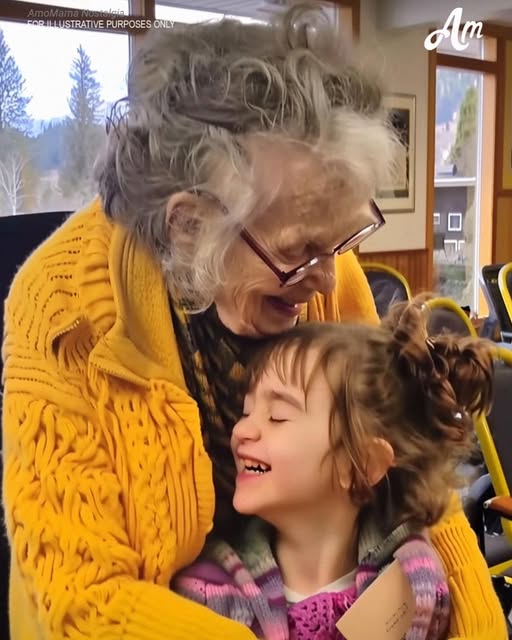They said I was too old, too lonely, and too broken to matter, until I adopted a baby girl no one wanted. One week later, 11 black Rolls-Royces pulled up to my porch, and everything I thought I knew about her changed.
Advertisement
I never thought I’d be writing something like this. I’m 73, widowed, and most people think that women my age should stick to knitting scarves, watching game shows, and waiting for the inevitable. But life didn’t hand me that kind of ending. No, it gave me a story that still makes my hands tremble when I tell it.
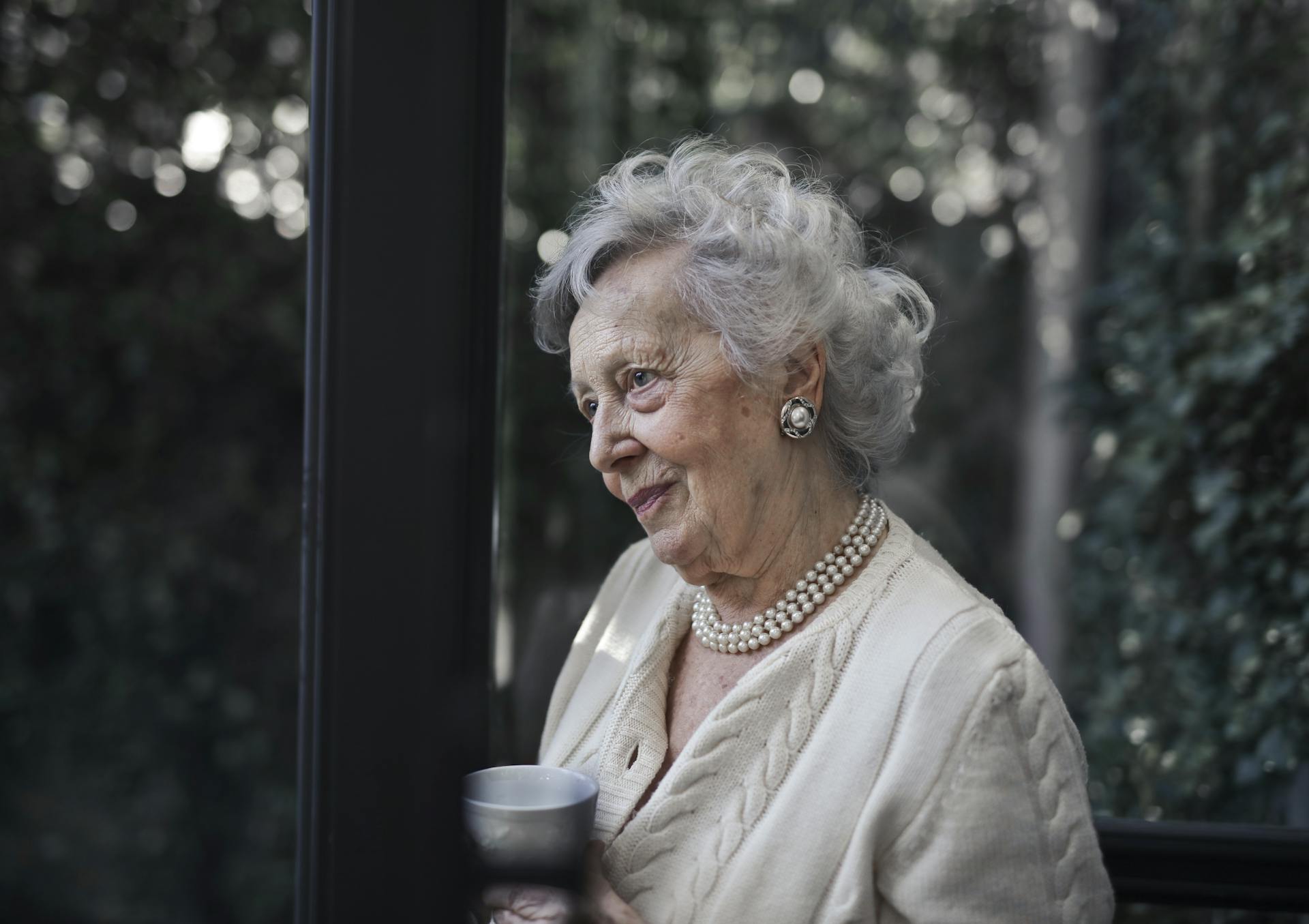
An elderly woman holding a mug of tea | Source: Pexels
My name is Donna, and I’ve lived in the same weather-beaten house in small-town Illinois for almost five decades. I raised two boys here. I buried my husband here. I’ve seen this porch covered in snowfall and funeral flowers. I’ve lived a full life, yes, but nothing prepared me for what happened after my husband Joseph passed away.
When Joseph died, the silence hit like a freight train. After nearly 50 years of marriage, there’s no real way to prepare for that kind of emptiness. Without him, even the ticking clock on the wall seemed too loud. He had been my compass, my steady hand, and the man who always kept the coffee pot full and remembered to put gas in my car when I forgot.
Advertisement

An elderly couple sitting on the couch | Source: Pexels
The night after his funeral, I sat on the edge of our bed, holding his flannel shirt, still faintly smelling of aftershave and peppermint. I didn’t cry much. I just stared at the spot on the wall where his coat used to hang. I don’t know why, but the house felt like it had exhaled and gone hollow.
The only noises came from the strays I had taken in over the years, mostly cats and a couple of old dogs from the shelter that no one had ever adopted. My children hated that.
“Mom, it stinks in here,” Laura, my daughter-in-law, snapped one evening, crinkling her nose as she lit some kind of lavender-scented candle.
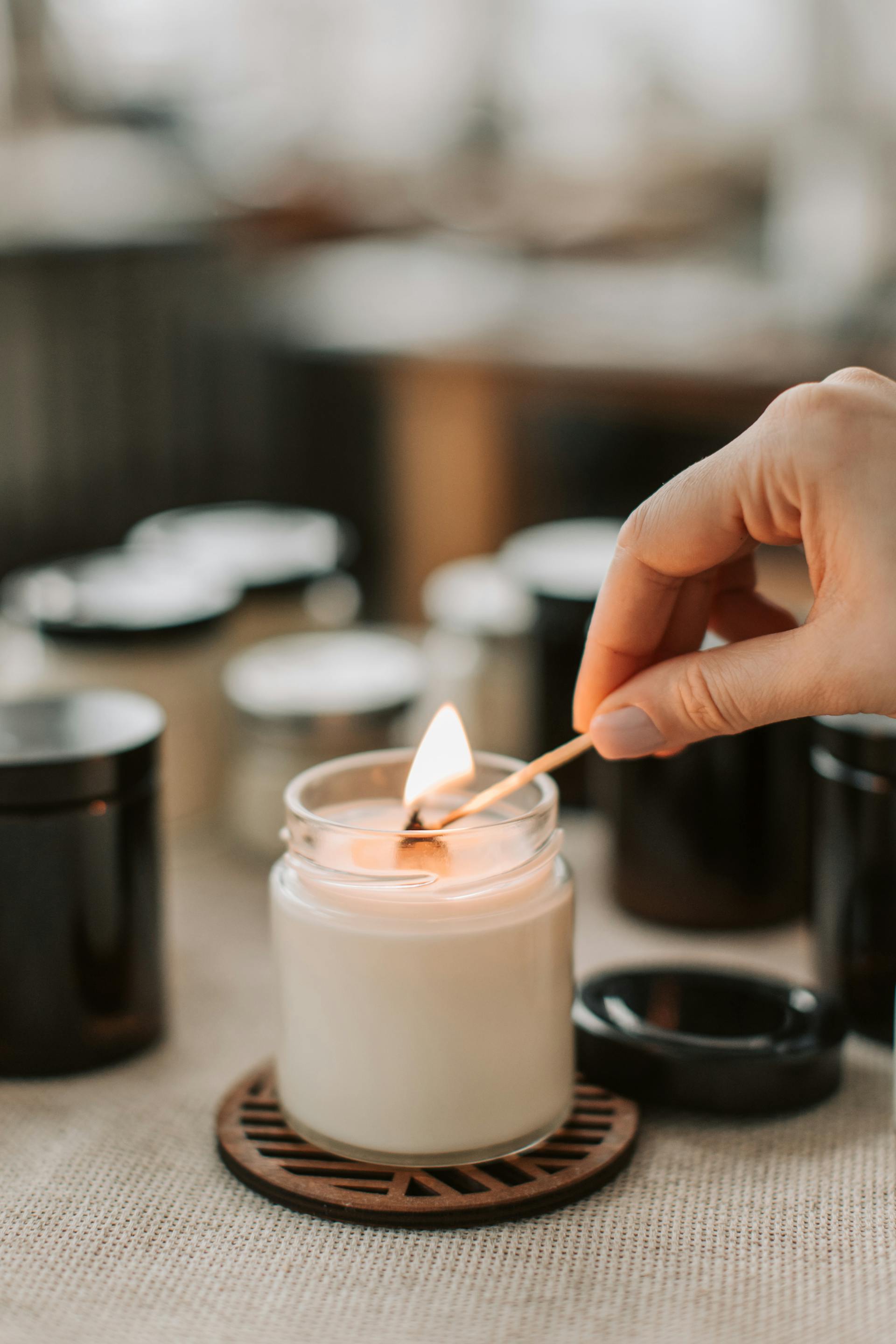
A close-up shot of a woman lighting a candle | Source: Pexels
Advertisement
“You’re turning into some crazy cat lady,” my son Kevin added, looking around like he was embarrassed just being inside.
They stopped coming by after that, saying they were busy, though I saw their photos on social media, smiling at wine tastings and lake house parties. My grandkids once dropped in for cookies, but now they hardly text me back.
Christmas was the hardest. I’d make a pot of Earl Grey and sit by the window, watching snow pile up on the front steps, wondering how a house once so full of life could feel so silent.
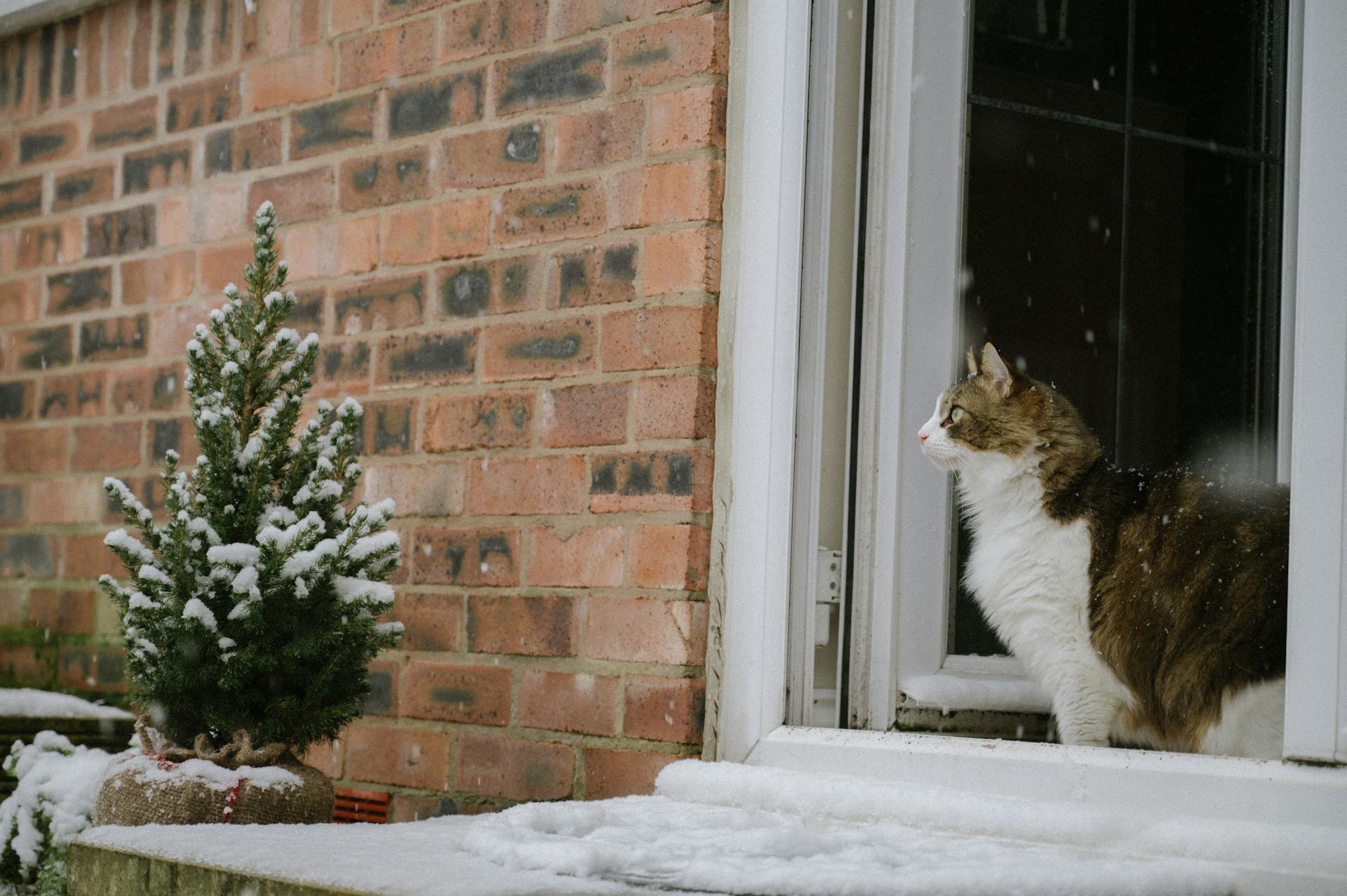
A cat sitting in the snow outside a window | Source: Pexels
I tried. I really did. I joined a gardening club. I started volunteering at the library. I even baked banana bread for the local fire station. But nothing filled the space Joseph had left behind. Grief, I’ve learned, doesn’t walk out the door; it lives in the hallway, waiting for you in every quiet moment.
Advertisement
Even in rooms full of people, I felt like a ghost slipping by unnoticed.
And then, one Sunday morning at church, something happened that changed everything.
I was helping arrange hymn books in the back room when I overheard two volunteers whispering by the coat rack.

A collection of books on a shelf | Source: Pexels
“There’s a newborn at the shelter,” one said quietly. “A girl. She has Down syndrome. No one’s coming for her.”
“No one wants a baby like that,” the other replied. “Too much work. She’ll never live a normal life.”
Their words punched right through me. I didn’t even think. I turned around and said, “Where is she?”
Advertisement
The younger volunteer blinked. “Excuse me?”
“I want to see her,” I said.
Later that afternoon, I went to the shelter. The room was small and smelled faintly of formula and antiseptic. And there she was, so tiny and wrapped in a thin, faded blanket. Her fists were curled tight under her chin, and her lips made the softest little squeaks as she slept.
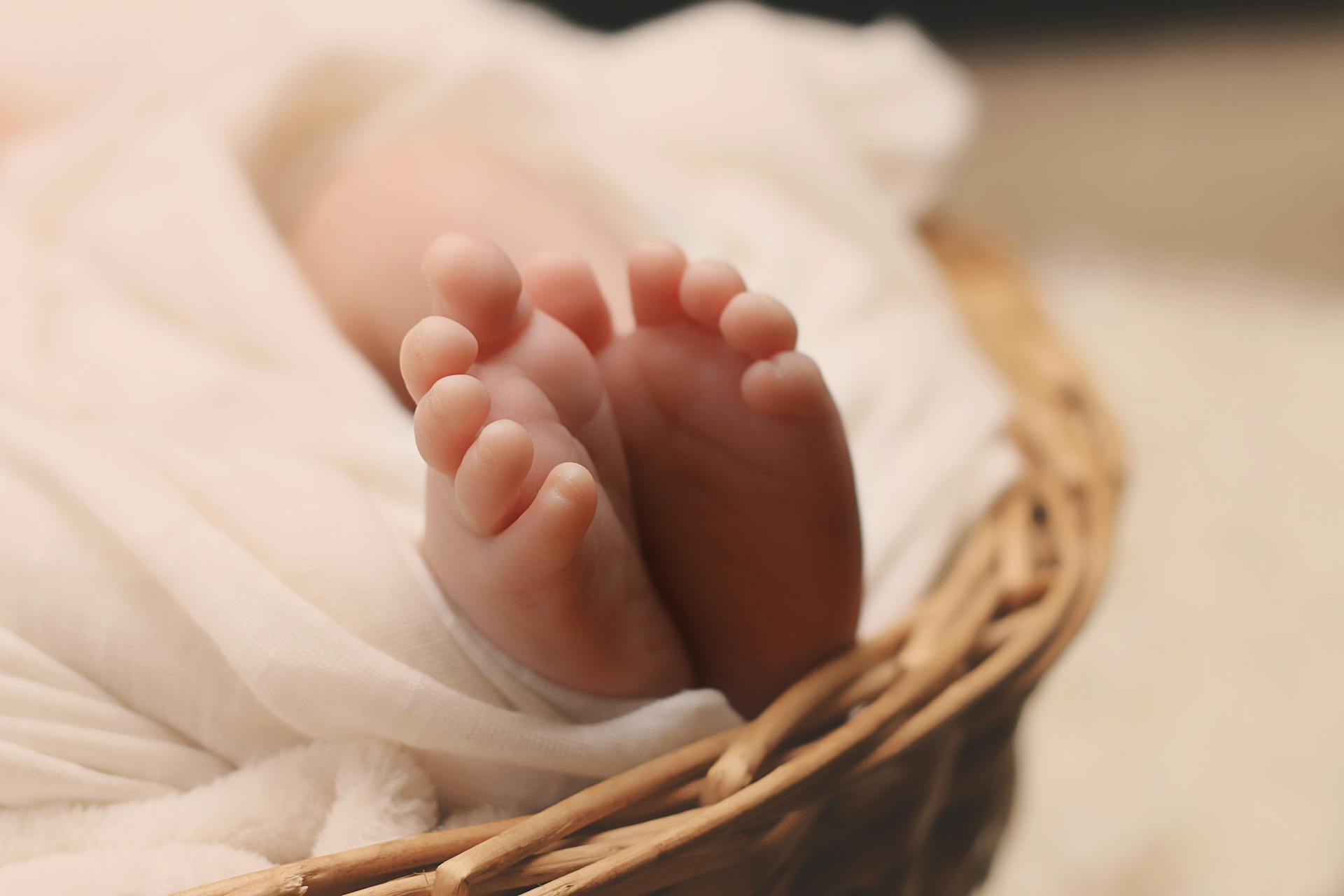
A close-up shot of a baby’s feet on a wicker basket | Source: Pexels
When I leaned over her crib, her eyes fluttered open. Big, dark, curious eyes. She stared at me as if she were trying to figure me out, and something inside me, something I thought had long gone numb, suddenly cracked wide open.
“I’ll take her,” I said.
Advertisement
The room went dead silent. A woman in a red cardigan looked up from her clipboard.
“Ma’am…” the social worker stammered. “At your age—”
“I’ll take her,” I repeated.
She stared at me for a long time, like she was waiting for me to take it back. But I didn’t.
Bringing that baby home felt like carrying light into a house that hadn’t seen sunlight in years. But not everyone saw it that way.
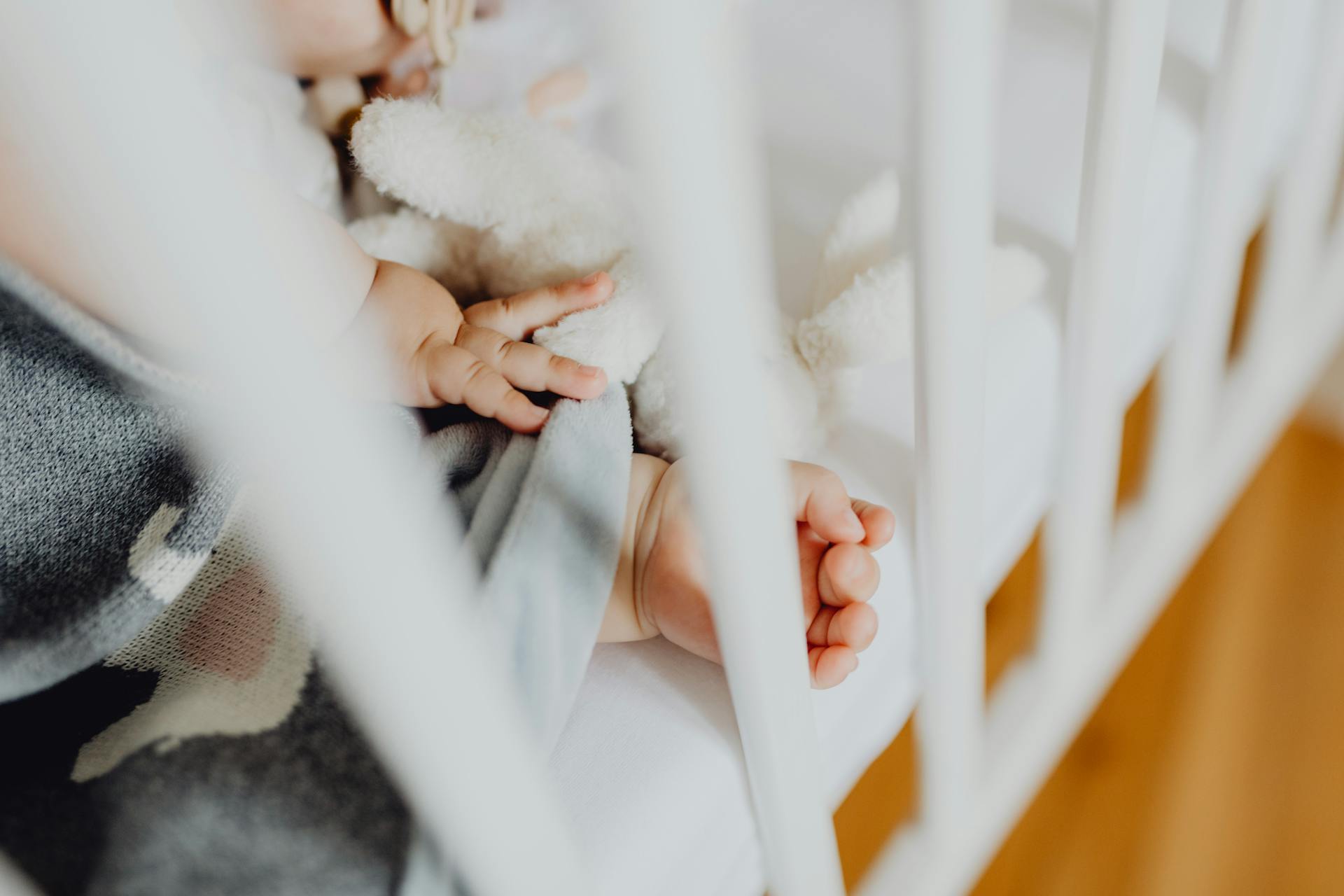
A close-up shot of a baby sleeping in a cot | Source: Pexels
The neighbors started whispering. I caught them peeking through their curtains like they were watching some kind of freak show.
Advertisement
“That crazy widow,” I overheard Mrs. Caldwell mutter one day while watering her begonias. “First, all those animals, now she’s got a disabled baby?”
Kevin showed up three days later, face red with fury.
“Are you insane?” he yelled, walking into my kitchen like he still had a right to. “You’re 73! You can’t raise a baby. You’ll die before she even gets to high school!”
I stood at the stove, holding the baby close to my chest. Her tiny hand was gripping the collar of my cardigan like a lifeline.
“Then I’ll love her with every breath until that day comes,” I said calmly.
Kevin’s face twisted. “You’re humiliating this family.”

A man screaming | Source: Pexels
Advertisement
I looked at him for a moment, really looked at him. “Then you don’t deserve to call yourself family,” I said, and I walked over and shut the door behind him.
I named her Clara. There was a tiny onesie in her hospital bag that had the name stitched in purple thread. That was enough for me. Clara. It felt right.
She started smiling within a week. Every time she wrapped her fingers around mine, it felt like she’d been waiting her whole life for me to show up.
It was exactly seven days later when I heard the engines.
Not just one. Several. The kind of low, powerful hum that makes your skin prickle. I stepped onto the porch with Clara in my arms, and my breath caught.
Eleven black Rolls-Royces lined up in front of my crumbling little house. Their chrome gleamed in the afternoon sun, and their windows were so darkly tinted that I could not see a thing inside.
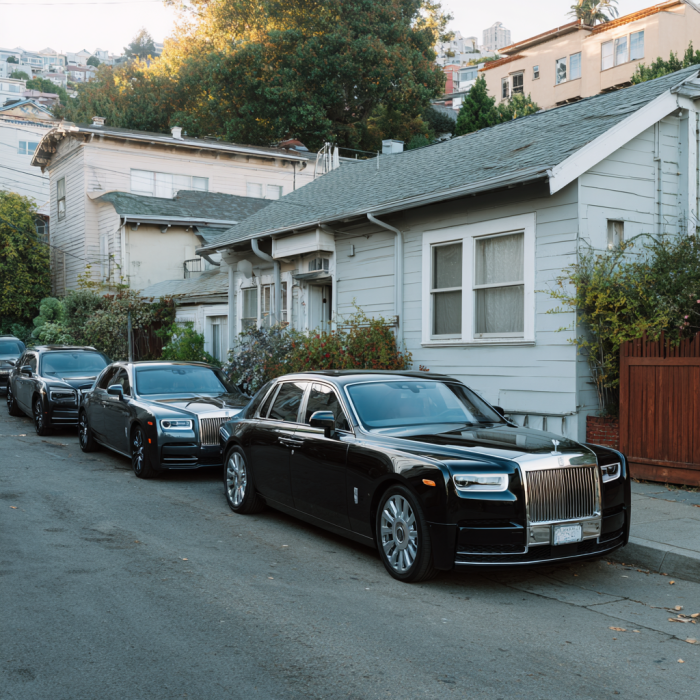
Several black Rolls-Royces lined on the street | Source: Midjourney
Advertisement
Then the doors opened.
Men in tailored black suits stepped out, one after the other. They looked like they belonged in some high-level government agency or secret society.
They walked toward my porch slowly. One of them raised his hand and knocked on my front door.
My knees nearly gave out.
One of the men stepped forward, tall with salt-and-pepper hair and a kind, unreadable face. His voice was calm but carried the weight of formality.
“Are you Clara’s legal guardian?”
I shifted Clara on my hip and nodded slowly.
“Yes,” I said. My voice came out hoarse. “Why?”
He reached into a leather folder and pulled out an envelope, then handed it to me without another word. My hands shook slightly as I opened it. Inside were papers: thick, official-looking documents, embossed seals, and even a lawyer’s letter.

A close-up shot of a woman reading a letter | Source: Pexels
Advertisement
I sat down on the porch swing, holding Clara close to my chest as I skimmed the first page.
Clara wasn’t just any abandoned baby. Her birth parents had been young, successful entrepreneurs, tech people from what I could gather, living fast, building an empire, and apparently doing it with heart. They had died in a tragic house fire just weeks after she was born.

Two firemen standing in front of a building on fire | Source: Pexels
Clara was their only child. Their only heir.
Everything they had, from the sprawling mansion upstate to the investments, the cars, and a bank account that made my jaw drop, was left to her. But because no one claimed her, it had all been sitting in legal limbo.
Advertisement
Until me.
I looked up at the suited men standing silently on my lawn, those eleven black cars gleaming like some surreal dream.
“You mean… she owns all this?” I asked, blinking.
A younger man with glasses stepped forward. “Yes, ma’am. Everything belongs to Clara. And now that you’re her legal guardian, it’s your responsibility to manage it until she comes of age.”
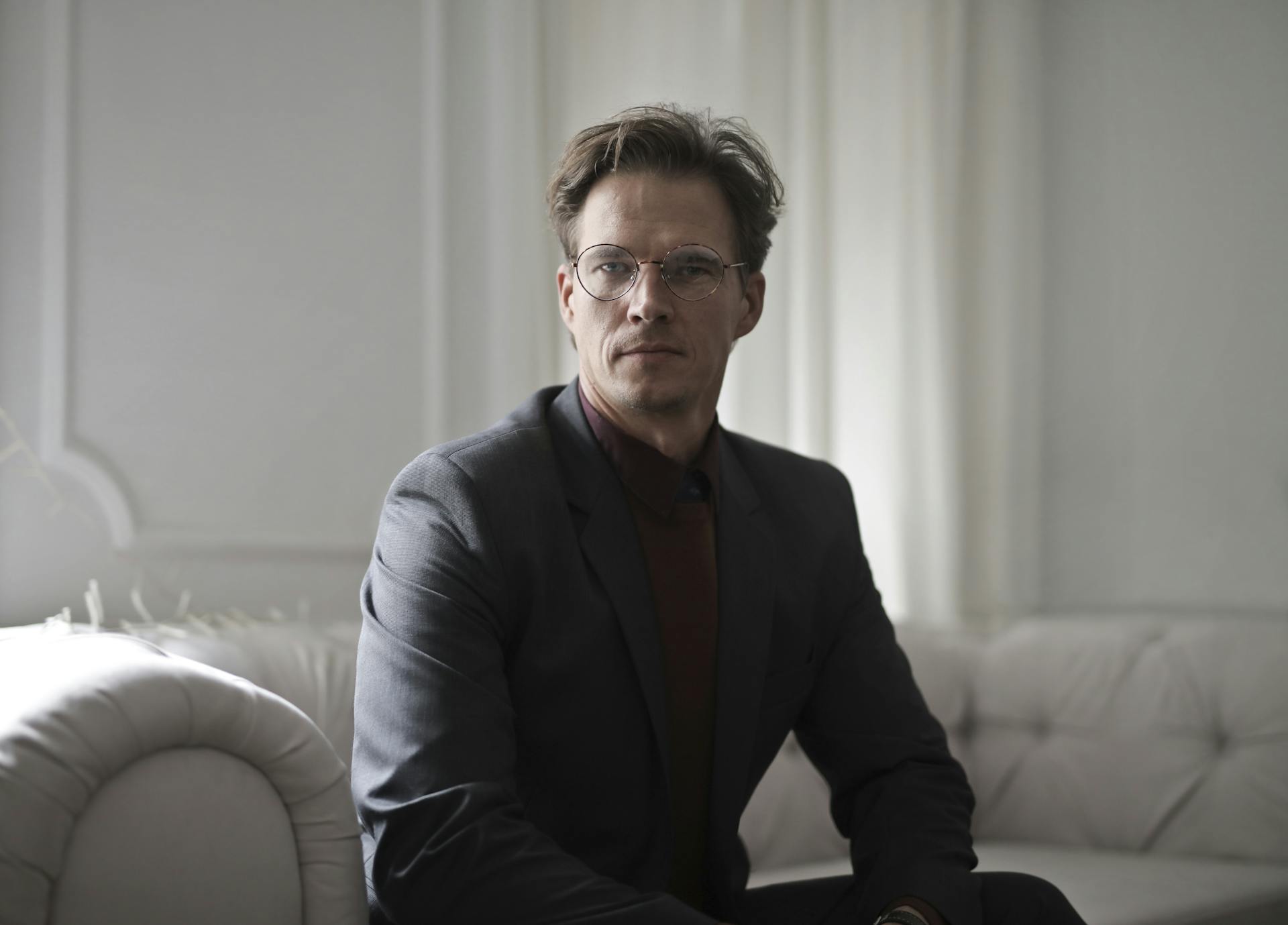
A man wearing a blazer and eyeglasses sitting on a sofa | Source: Pexels
I stared down at Clara, her soft cheek resting against my chest, a tiny sigh escaping her lips as she napped. I didn’t know whether to cry, laugh, or faint.
Back inside the house, the lawyers laid out the options. One of them pulled out a set of architectural plans and estate photos. The mansion had 22 rooms, marble floors, manicured gardens, a pool house, and staff quarters. It was all Clara’s by birthright.
Advertisement
“You and Clara can move in immediately,” one said. “We can help hire staff: nannies, nurses, and a house manager. You can raise her in comfort and security.”
For a moment, I let my imagination run wild. Chandeliers. A nursery with gold trim. A grand piano in the parlor. A full-time chef whipping up little heart-shaped pancakes.

Elegant Christmas decor on a grand piano | Source: Pexels
But then Clara stirred in my arms, making that tiny whimper she made whenever she was cold or needed to be closer. I looked down at her, and in that moment, the fantasy crumbled like stale bread.
That wasn’t love. That was money trying to dress up emptiness.
“No,” I said, gently patting Clara’s back.
Advertisement
The lawyers blinked. “Ma’am?”
“I’m not raising her in a cage made of velvet. I didn’t take her in to polish her like a trophy. I took her in because no one else would.”
I took a deep breath, standing straighter than I had in months.
“Sell the mansion. Sell the cars. All of it.”
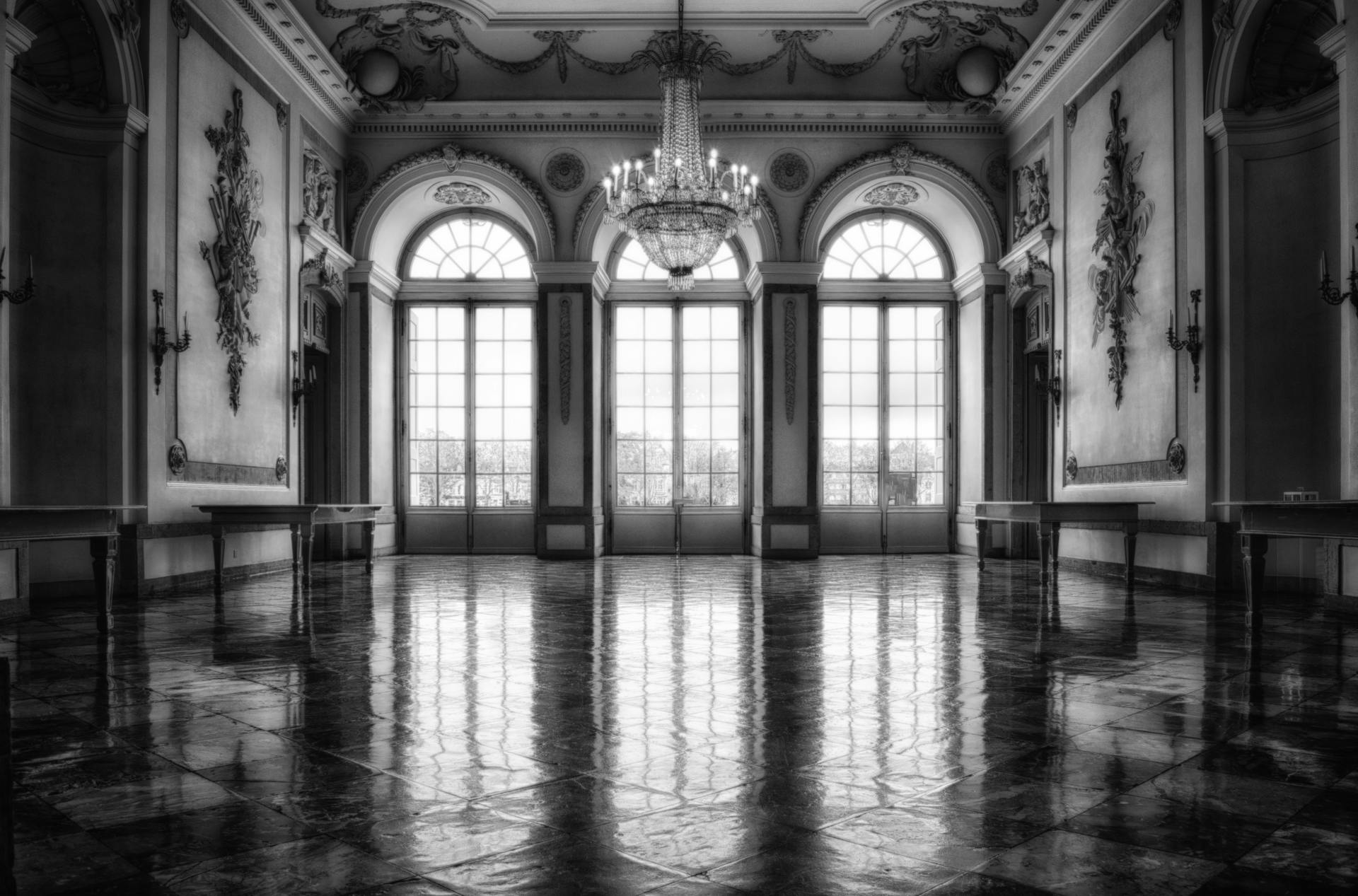
A grayscale photo of a building’s interior | Source: Pexels
“But—”
“I know what I said.”
So we did.
And with every penny, I built two things that mattered.
The Clara Foundation, named in her honor, would offer therapy, education, and scholarships to children with Down syndrome. I wanted no child like Clara to ever be told they were “too much work” again.
Advertisement
And second, I finally built that animal sanctuary I’d always dreamed of. It wasn’t fancy, but it was full of warmth, open fields, and room for the strays nobody wanted. My house stayed the same, but now it sat beside a long barn filled with rescue dogs, blind cats, and one-legged chickens.
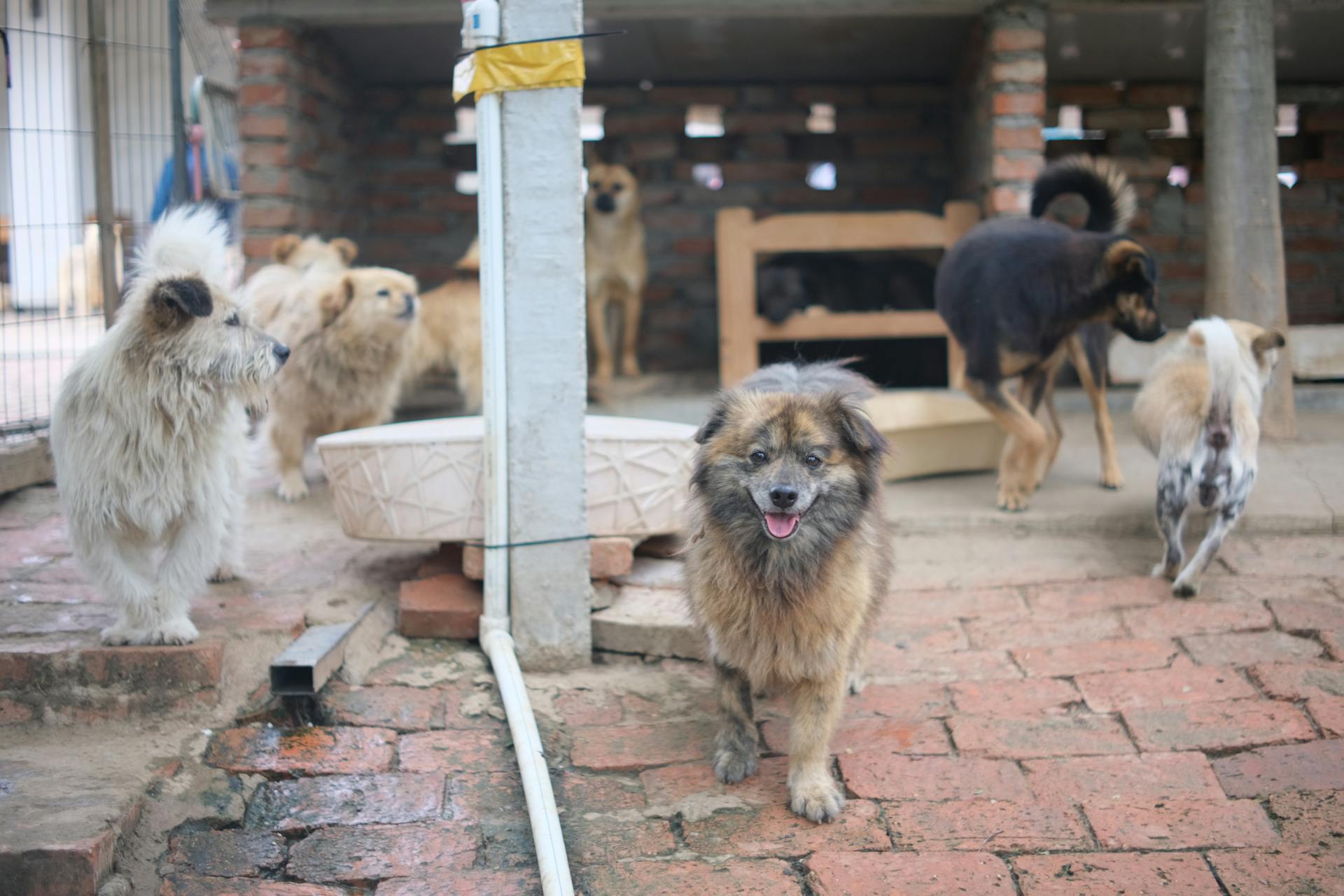
Dogs in an animal shelter | Source: Pexels
People called me reckless. Irresponsible. “You could’ve had everything,” one woman spat at me at the grocery store. “You’re wasting her future.”
But the thing was that I’d never felt more alive.
Clara grew up in a house full of fur, laughter, and the constant hum of music and chatter. She was a handful, curious, wildly creative, and stubborn enough to make a mule blush.
Advertisement
“Clara, no! The cats don’t need glitter!” I’d shout as she toddled past, a trail of sparkles falling from her little hands.
She painted every surface she could reach: walls, furniture, and even the kitchen tiles. Her favorite thing was to sit at the piano and plunk out her own songs, loud and proud, always off-key but sung with her whole chest.
